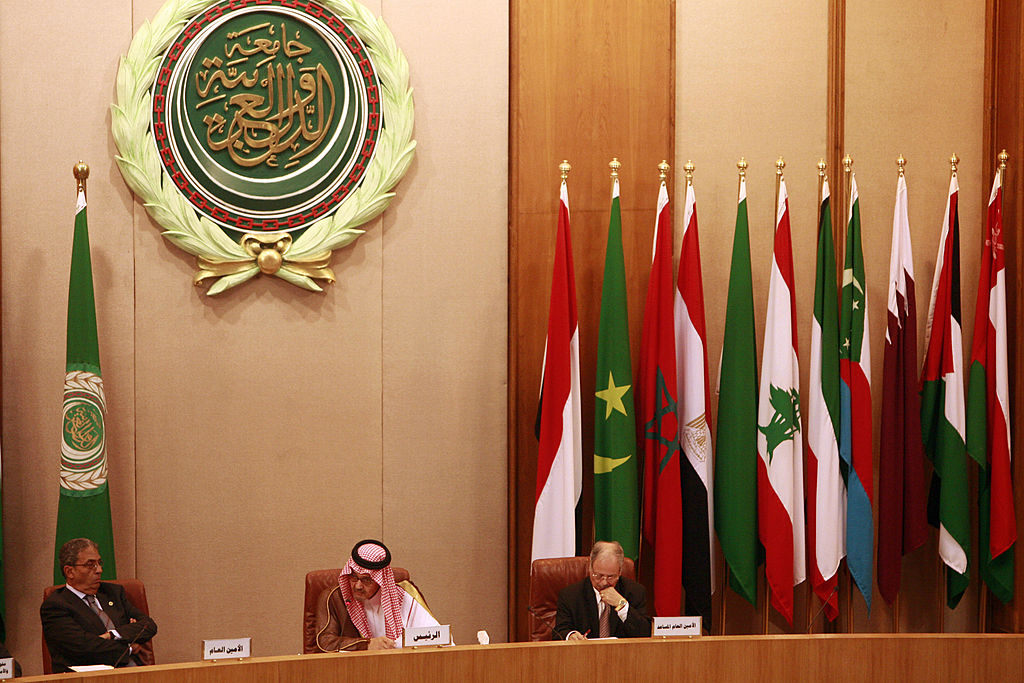
As the United States focuses on its showdown with Russia in Ukraine and its escalating competition with China, the Middle East has been left to run its affairs the way it always has: with marriages of convenience between rival powers. These are not Catholic-style ‘holy matrimonies’, comprehensive and permanent, but coolly pragmatic deals to survive through short-term relationships that fit changing strategic conditions. If only Israel understood that.
Of course, one relatively constant factor—religion—does play an important role in determining whether countries in the region are rivals or allies. But the Sunni–Shia divide has been accorded excessive weight in assessments of the Middle East’s diplomatic shifts. Geopolitical interests and regime survival always prevail over religious identities. This helps to explain why conservative Arab regimes have shown such a remarkable ability to withstand both internal upheaval—exemplified by the resounding defeat of pro-democracy forces during the Arab Spring—and external pressures.
The Gulf countries exemplify this hard-headed approach. Business-oriented and living in the shadow of predator states like Iraq and Iran, they are much more concerned with commerce and discreet security understandings than with ideology. A particularly striking display of such diplomatic pragmatism came last month, when Saudi Arabia, the leader of the Sunni world and Shia Iran re-established relations.
Beyond the headlines trumpeting China’s role in mediating the rapprochement, the logic driving the shift is clear. For Iran—desperate to extricate itself from the economic and social crises that have fuelled popular uprisings in recent months—Saudi Arabia is a much-needed lifeline. For the Saudis, the failure of America’s ‘maximum pressure’ campaign against Iran—thanks, not least, to its alliance with China and Russia—and Iran’s imminent emergence as a nuclear state make détente a necessity.
Saudi Arabia was most likely also motivated by the prospect of ending the war in Yemen, where it has suffered humiliating losses at the hands of the Houthis, Iran’s proxies. Peace would enable the kingdom to focus its attention on diversifying its economy away from oil and petrochemicals. As a trade-dependent economy, Saudi Arabia can thrive only in a context of peace and security.
Saudi Arabia’s opening with Iran is part of a broader regional accommodation. The United Arab Emirates re-established diplomatic relations with Iran last year, with Bahrain expected to follow suit soon. Turkey has reached out to both Syria and Israel, and the Arab states seem to be allowing Syria—with its distinctly secular and nationalist Ba’ath regime—back into the fold. Last month, Syrian President Bashar al-Assad, long shunned as a pariah, visited the UAE, and a Saudi reconciliation with the ‘butcher of Damascus’ is now in the offing.
Here, too, pragmatism has been the guiding principle. Different conditions call for different policies, and at a time when the US—Assad’s main international nemesis—has become less assertive in the region, Syria has come to seem like a legitimate partner.
But no one should expect that the Arab League will welcome Syria back only if it pledges to reduce Iran’s military deployment on its territory. A key feature of Middle Eastern marriages of convenience is that they don’t entail policy changes that reflect the parties’ core interests. Iran won’t downgrade its support for Hezbollah in Lebanon, whether it has embassies in Saudi Arabia or not.
Likewise, the Saudi–Iranian rapprochement won’t change the fact that the US is the ultimate guarantor of Saudi Arabia’s security. Nor does it rule out a Saudi–Israeli peace agreement. The House of Saud is always keen to diversify its strategic options.
Before a Saudi deal with Israel can happen, however, Israel will have to put its domestic political house in order, avoid escalation in the occupied territories, freeze settlement expansion and restore its relationship with the US. More fundamentally, Israelis must comprehend what the Arabs, Turks and Iranians already understand: pragmatic deal-making will do it a lot more good than an impossible quest for total victory.
The 2020 Abraham Accords, which normalised diplomatic relations between Israel and the UAE, Bahrain, Morocco and Sudan, were more a product of American pressure than diplomatic savoir faire on Israel’s part. And, in the eyes of its newfound Arab partners, Israel’s standing is already deteriorating, owing not only to its domestic crisis, but also to its refusal to rethink its Iran strategy.
While other Middle Eastern countries adapt to current strategic conditions, Israel remains committed to its longstanding ‘shadow war’ against Iran, with its covert attacks, including drone strikes and cyberattacks, as well as airstrikes against Iranian targets in Syria. Despite the region’s recent surfeit of marriages, Israeli leaders’ lack of vision and courage implies that they are unlikely to step up to the altar any time soon.

